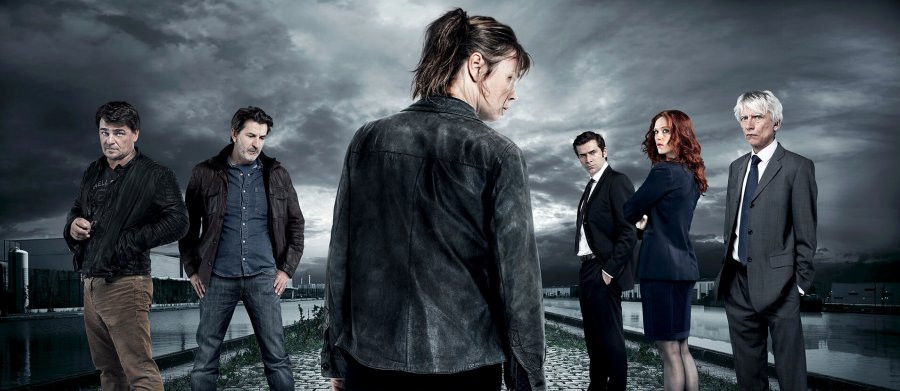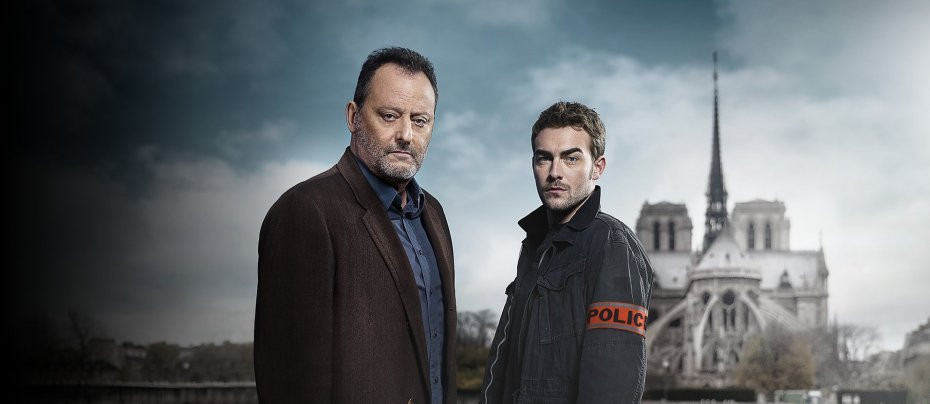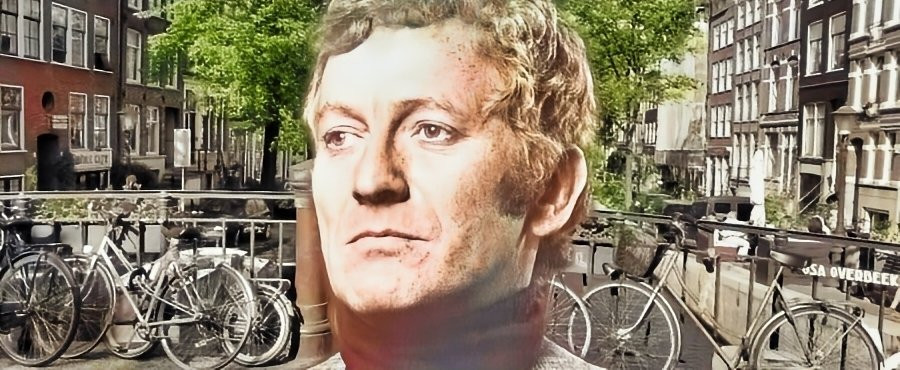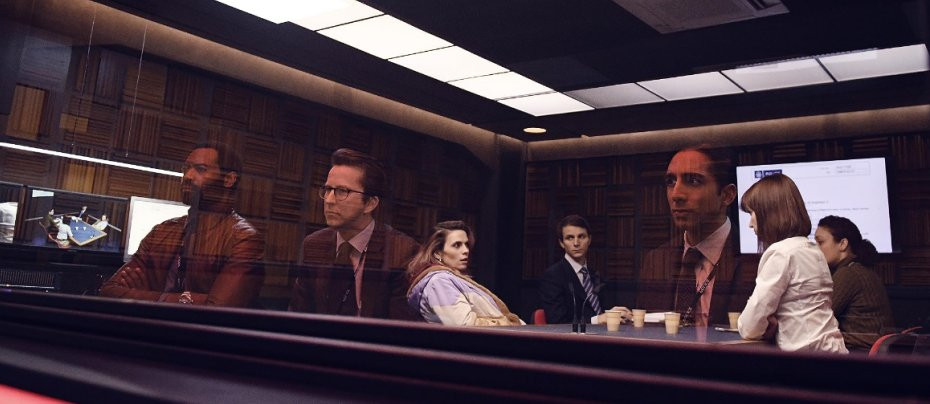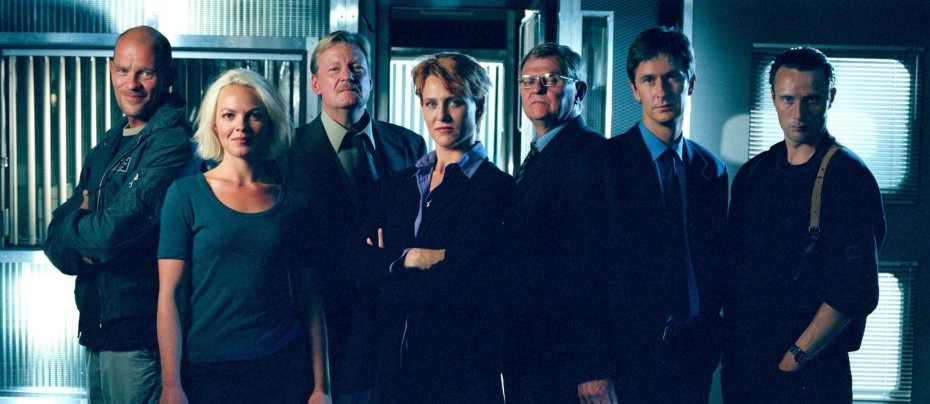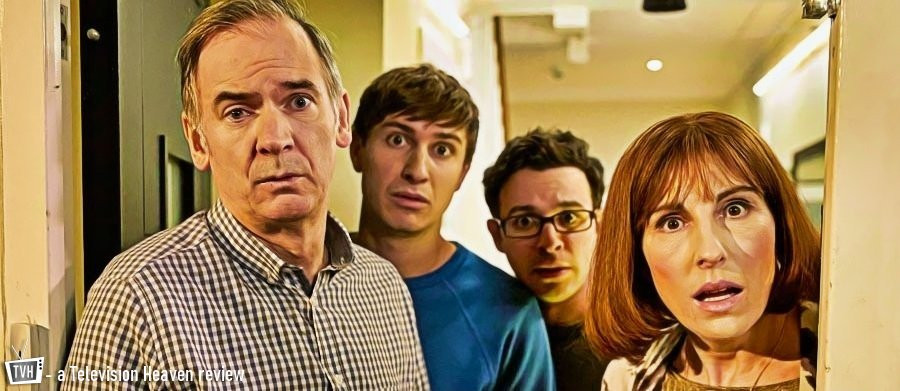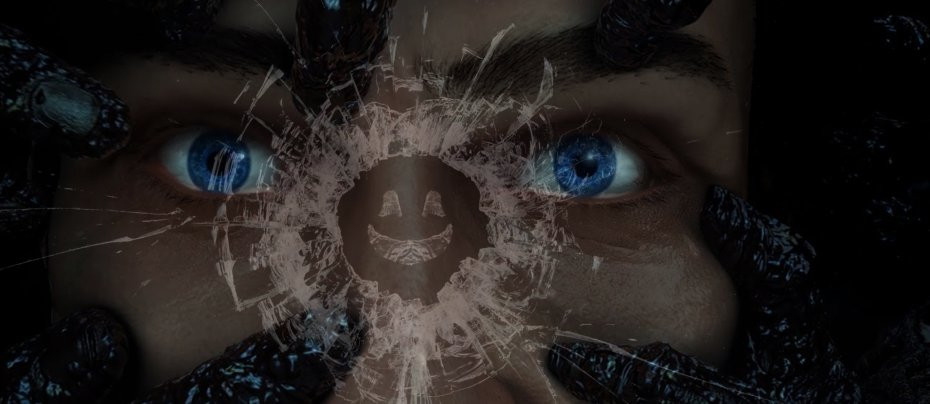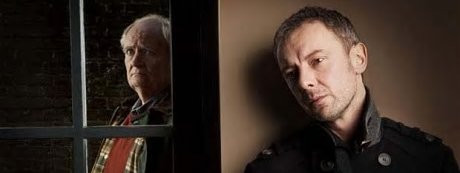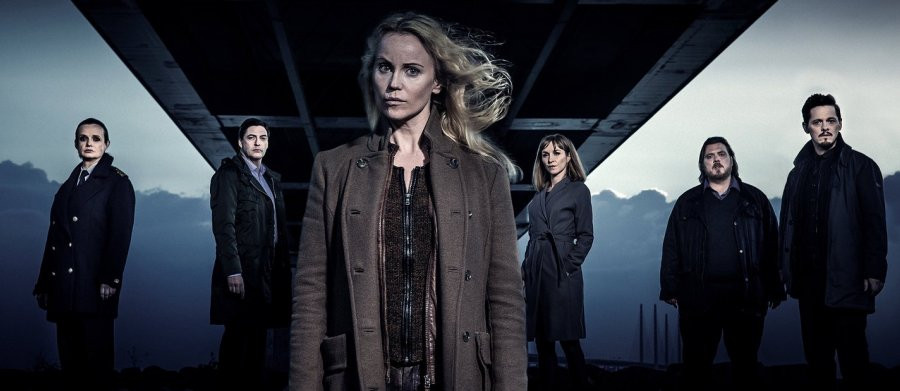
The Bridge / Bron / Broen
2011 - SwedenThe unexpected international success of Forbrydelsen/The Killing , especially on British television in 2011, started something of a gold rush for quality European drama, and for "Nordic Noir" in particular.
This was led by the Danes themselves, who were keen to follow up their success. Unlike the people responsible for the American remake, they had a shrewd idea of what had made The Killing so appealing and decided to double down on those factors.
Many of them being very familiar with London, they understood the faint hint of exoticism that still attaches to anything Scandinavian in the UK. To put it simply, they set out to make "Nordic Noir" more Nordic and more Noir.
In this they had a secret weapon: the Swedes, who co-produced.
Being more Nordic does not just mean going further North. It is a cultural thing, and all the other Nordic countries agree that no one conforms to the Nordic stereotype better than the Swedes.
The irony is that most British viewers who enjoyed The Bridge never got the big joke that underpins the whole concept. To explain a joke laboriously is itself a very Scandinavian thing to do, at least according to the stereotype - which is the whole point, because The Bridge is really all about racial stereotypes.
One might think that the Scandinavians themselves are above such things, and they certainly like to give that impression, but some old stereotypes are alive and well and living in Scandinavia, and The Bridge is confirmation. Brits tend to lump Scandinavians in one common stereotype, basically as very serious minded people, but that is like thinking of all the nations of the British Isles as a single stereotype.
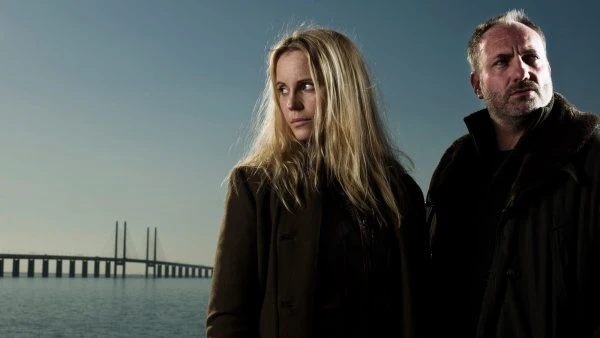
The better analogy is to look on Sweden, Denmark, and Norway as England, Scotland, and Ireland, or maybe Wales. Norway is obviously the Scandinavian Ireland, or maybe Wales. Sweden and Denmark are England and Scotland - or possibly vice versa. As with their British equivalents, there is a lot of history between them, much of it very violent. Historically, Denmark was a lot bigger and Swedish conquests were one of the factors that made it smaller.
There are similarities between their languages, so that they can just about understand each other, but also differences, to which there are frequent allusions in the dialogue of The Bridge. Above all, there are the considerable cultural differences. Now this is the part with which many non-Scandinavians may have difficulty...
Although part of the success of The Killing is due to the way the Danes are seen as conforming to the international stereotype of Scandinavians as very serious minded, within Scandinavia itself the stereotype is that the Danes are fun loving and frivolous.
Honestly. Of course, it is all relative, and it is a bit like saying the Swiss of certain Cantons are seen as more fun loving and frivolous than other Swiss. Whatever the truth of it, that is how the Danes are perceived by their Northern neighbours - as "the Latins of Scandinavia."
The Swedes, by contrast, are viewed by their immediate neighbours as "the Prussians of Scandinavia." Even by the standards of the Scandinavian stereotype the Swedes are seen as humourless, literal minded, legalistic, conformist, and hyper serious.
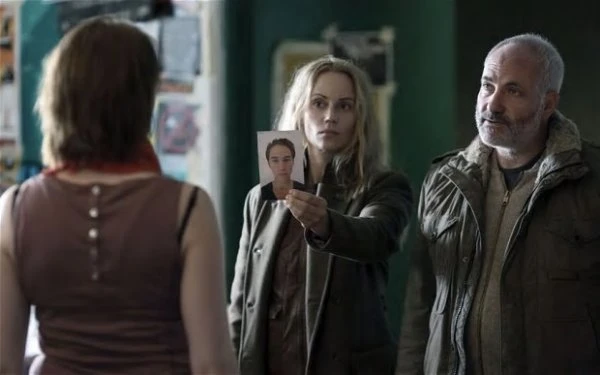
There is an old Scandinavian joke to the effect that inside every Swede is a policeman trying to get out and inside every Dane a criminal - which says something about Scandinavian jokes.
That is the basic joke on which The Bridge ran for four seasons, the contrast between the Danish and Swedish stereotypes. As if that was not enough, the producers decided to make the Swedish protagonist even more stereotypically Swedish. They also understood that another of the factors that made The Killing so unique was the character of its heroine, Sarah Lund.
If Sarah was borderline autistic, Saga Norén in The Bridge seems to go over the border and deep into the hinterland. Or does she? As we find out more about her past, we begin to wonder if her apparent lack of basic human connection is not autism but an emotional shield. Either way, she seems to have no social skills, no understanding of the feelings of others, no filter on saying aloud what she happens to be thinking, and no real sympathy for other people. As a police officer, she is strictly by the rule book, which turns out to be a bit hypocritical.
To be honest, even in Sweden, no "diversity" policy would allow her to be put in any responsible position that involved regular interaction with human beings, let alone one involving firearms and legal authority over others.
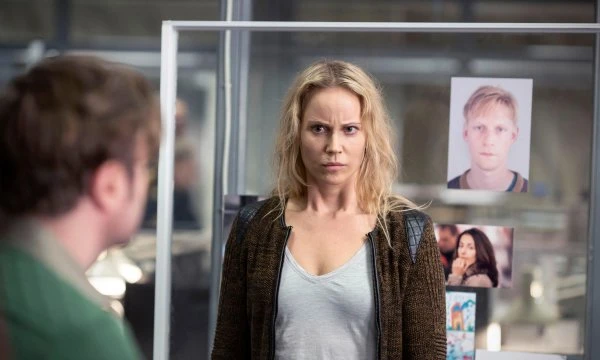
All this could make her totally charmless, but, as played by Sofia Helin, she is extremely loveable. This is partly due to the childlike innocence with which she delivers hilariously uncensored lines that are obviously going to get her into trouble. Mostly it is due to the underlying vulnerability she cannot conceal all the time, especially when she knows she has committed some huge social error but struggles to understand why. It is impossible for Buffy the Vampire Slayer fans not to think of Anya, the demon trying to be human.
To punch up the contrast, her Danish counterpart, Martin Rohde, is an amiable, easygoing bear of a man who probably cares too much. He is played by Kim Bodnia, who made a huge impact in the acclaimed Danish film 'Pusher' and who is probably best known to British viewers from Killing Eve .

The pretext for bringing these two arch-stereotypes together is the discovery of a body, or rather two halves of two different bodies, exactly half way across the Oresund Bridge between Sweden and Denmark. This necessitates a joint investigation by detectives from both nations, spearheaded by Norén and Rohde. The Bridge of the title is therefore not only the geographical bridge but also the link between the detectives of the two nations. However, it should be noted that the wonder of engineering that is the Oresund Bridge is located in a region that was the subject of much historical conflict between Sweden and Denmark.
That may be symbolic of the onscreen relationship between Norén and Rohde, which ends on a sour note - and perhaps also of the offscreen relationship between Bodnia and the producers. He left after just two seasons, citing, with some reason, unhappiness about the direction his character had taken and concerns about antisemitism in Sweden.
It was not the same without him. Despite an interesting backstory, a new Danish detective played by Thure Lindhardt - Guthred in BBC's The Last Kingdom - was no substitute. We all wanted Saga and Martin to see each other again - and possibly more than that.

Nevertheless, The Bridge still succeeded its objective in going "one up" on The Killing in every department, including overall quality. If there was a slight decline after the second season, the same was also true of The Killing. It is therefore fair to claim that The Bridge is a rare example of an imitation excelling the original.
Part of the fun by this stage was looking for familiar faces from Denmark's fairly small pool of professional actors. It was a nice nod to The Killing to see Mikael Birkkjaer and Nicolas Bro. Dag Malmberg (from Sweden) and Sarah Boberg impressed as the Swedish and Danish Police Commissioners respectively, and were rewarded with a good story arc of their own. In smaller roles, Kirsten Olesen, as a Danish detective who was briefly Saga's partner, and Vickie Bak Lauresen, as a younger Danish detective, both left us wishing we had seen more of them.

The success of The Bridge prompted a number of international remakes - imitating the imitation. Most were about similar transnational bridges, but there was also The Tunnel, about a body found in the Channel Tunnel between Britain and France, and The Pass, about a body found in a mountain pass between Germany and Austria.
About the reviewer: John Winterson Richards
An experienced freelance writer as well as a consultant, John Winterson Richards has been commissioned and paid to write over 500 articles in print and online. He was a regular guest on the Mind Your Own Business podcasts and a major contributor to that website's blog.
John is the author of 'The Xenophobe's Guide to the Welsh' and the 'Bluffer's Guide to Small Business.' Under the name Charles Cromwell, John is the author of three novels, 'Young Herod,' 'Seven Days in Jerusalem,' and 'Leonardo Investigates: Death in Pisa.' All can be downloaded from Amazon.
He is also the co-writer, with Andrew Harman, past Head of History at Filton High School, of 'The Context of Christ: the History and Politics of Judea and Rome, 100 BC - 33AD', also available on Amazon Kindle.
Seen this show? How do you rate it?
Seen this show? How do you rate it?
Published on January 10th, 2020. Written by John Winterson Richards for Television Heaven.


